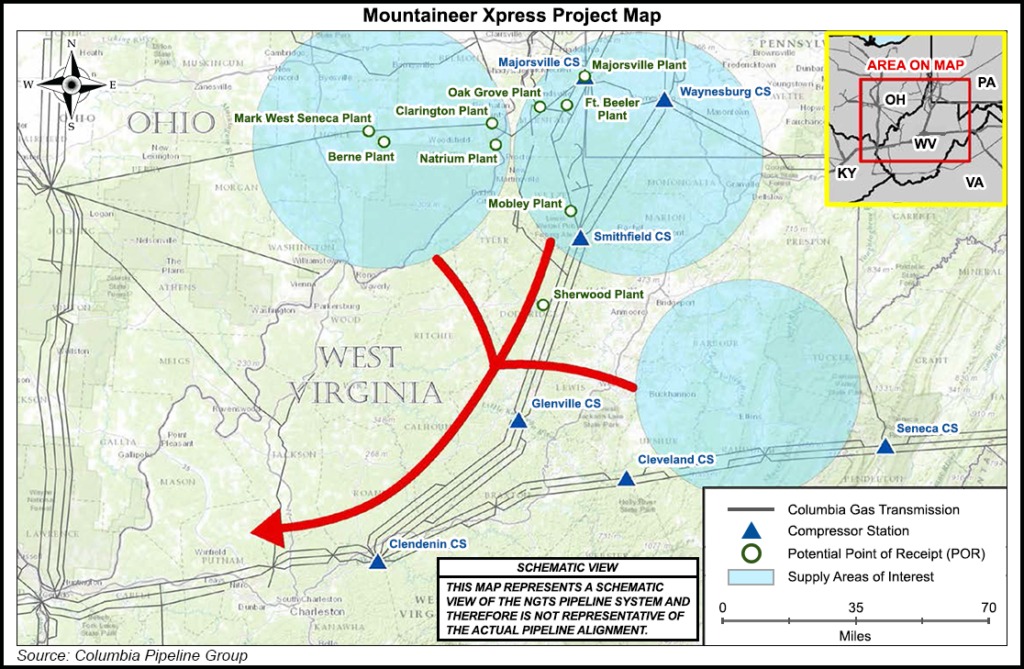Infrastructure | NGI All News Access | NGI The Weekly Gas Market Report | Regulatory
Appalachian Expansion Projects Mountaineer XPress, Gulf XPress Get Favorable DEIS
FERC published a favorable draft environmental impact statement (DEIS) Monday for TransCanada Corp.’s Mountaineer XPress (MXP) and Gulf XPress (GXP) expansion projects, bringing more Appalachian Basin takeaway capacity one step closer to hitting the market.

Environmental staff for the Federal Energy Regulatory Commission concluded that constructing MXP and GXP “would result in some adverse and significant environmental impacts” but that through mitigation “these impacts would be reduced to acceptable levels.”
In December, FERC pushed back the environmental review schedule for MXP and GXP by three months to address reroutes and additional environmental information.
Columbia Pipeline Group Inc. filed applications for MXP and GXP with FERC last year, a few months before being acquired by TransCanada.
MXP would add 2.7 Bcf/d of firm transportation from the Marcellus and Utica shales in West Virginia along the Columbia Gas Transmission system. GXP would add 875 MMcf/d of firm transportation on the Columbia Gulf Transmission system, connecting Appalachian gas to markets further south.
According to FERC, MXP would involve:
GXP would involve construction of seven new compressor stations across Kentucky, Tennessee and Mississippi, along with upgrades to existing compression and metering facilities.
Columbia has said it plans to bring MXP into service by October 31, 2018, with construction expected to begin this fall. GXP appears likely to follow a similar timeframe, based on information previously provided by the company.
The DEIS for MXP and GXP comes just weeks after FERC certificated several other Appalachian Basin expansion projects as part of a last-minute flurry of orders before losing its quorum. The Rover Pipeline Project and the Atlantic Sunrise expansion for the Transcontinental Gas Pipe Line were both cleared to move forward.
The current slate of projects brings the promise of new takeaway capacity for the Marcellus and Utica after production growth slowed somewhat in 2016 due to pipeline constraints.
© 2024 Natural Gas Intelligence. All rights reserved.
ISSN © 1532-1231 | ISSN © 2577-9877 | ISSN © 1532-1266 |
